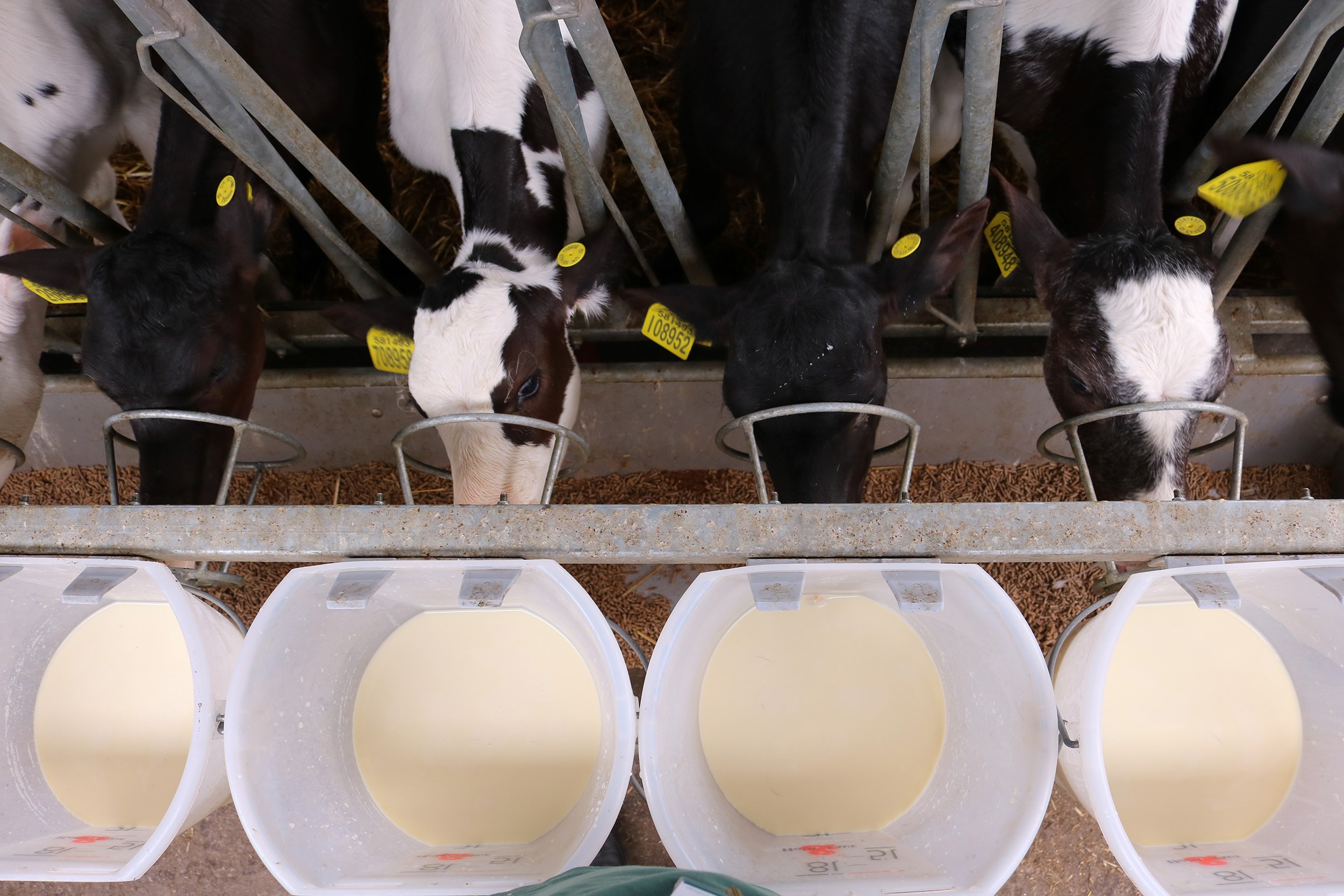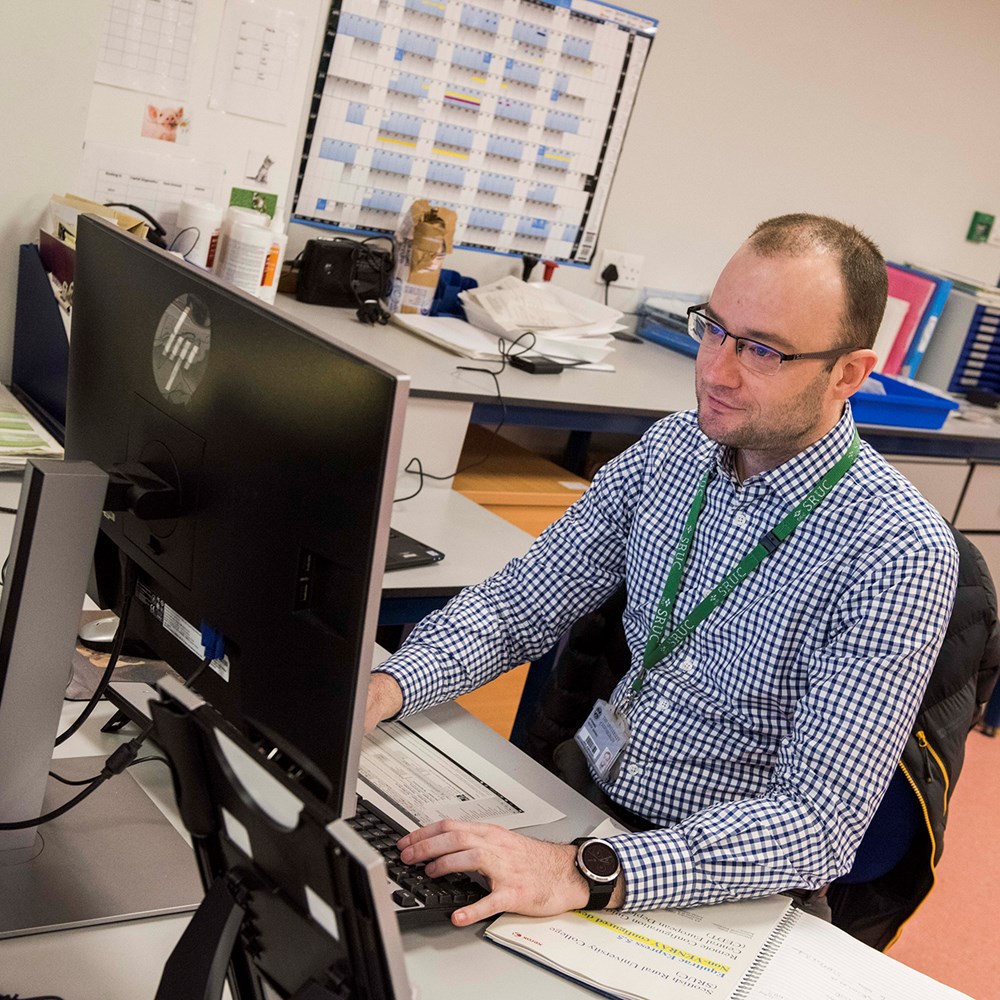Principal's Research Group
The Principal's Research Group brings together plant breeding expertise from across SRUC to boost the productivity, sustainability and resilience of food systems across the world.

Humanity is facing an acute food security and malnutrition crisis, with the global population set to reach 9 billion by 2050. To feed a population of that size, it is estimated that around 70% more food will need to be produced and distributed. This will require an increase of more than double our current yield levels of major staple crops such as rice, corn, barley and wheat. We also need to invest in a broader range of more nutrient-rich crops that provide much more than just calories.
The Principal's Research Group, led by Professor Wayne Powell, brings together recognised plant breeding experts to support the productivity, sustainability and resilience of food systems in order to help address global challenges. In support of this work, the group works with a wide range of partners internationally.
Professor Powell has spent his career developing and employing the latest scientific techniques to deliver real-world practical benefits for agriculture and the rural economies of the developed and developing world. Currently his research is focused on the interface of genome science, plant breeding and conservation of genetic resources, with a strong focus on 'public good' outcomes.
The Principal's Research Group exists to design more efficient plant breeding programmes and to develop new statistical methods and bioinformatic tools for breeding purposes. It undertakes research which helps us to understand crop domestication (the genetic modification of a wild species to create a new form of a plant in order to meet human needs) and how this can support ongoing genetic improvement. It also produces guidelines on different types of breeding applications to help transform our food system in a way that will benefit people and the planet.
As well as its research portfolio, the group is involved in capacity building through teaching in genetics and breeding at undergraduate and postgraduate levels, and in the direct training of active plant breeders.
You can find more information on the group's projects and recent research papers on the Principal's Research Group's Pure profile.
Designing more efficient breeding programmes
Controlled hybridization and selective breeding have been used for centuries to adapt plant and animal species for human use. However, achieving higher and sustainable rates of improvement in yield and quality require renewed genetic intervention and dramatic improvement of agricultural practices.
Genomic prediction of breeding values can improve selection efficiency, reduce costs and provide a platform that brings together breeding approaches, biological discovery, tools and methods.
Work undertaken by the Principal's Research Group has compared animal and plant breeding approaches to make this case. It proposes a strategy for the use of genomic selection as a unifying approach to deliver step changes in the rate of genetic gain at scale. Recently, the group developed a method applying genomic selection to better control the introduction of genetic variation present in unadapted and wild material into elite cultivars (a type of plant bred for desired traits).
The group develops and applies methods that incorporate technological advances into practical and cost-effective breeding programmes. Current work includes the application of genomic prediction and selection within mutation breeding, which continues to be an important and successful means of crop improvement, especially in India and the Far East.
Another area of focus is to support the development of cultivars of barley and ryegrass based on the application of the multiparent advanced generation intercross (MAGIC) strategy for breeding. This is an approach that may fit well with marker-assisted and genomic selection.
There is great interest in developing hybrid crops for inbreeding species such as wheat. Progress in this area may result from interactions within genes (heterozygosity) or between genes (epistasis). The group is working on approaches to quantify the relative importance of these interactions to determine the best way of breeding, looking particularly at methods to assess contributions empirically in wheat.

Developing new statistical methods and tools
The Principal's Research Group works to develop novel methods for trait mapping in genome-wide association studies (GWAS), and for the design and analysis of MAGIC populations.
It has developed and applied GWAS methods to collections of cultivars to identify loci responsible for crop improvement without the requirement for trait data. Loci identified as contributing to crop improvement can subsequently be tested for their effect on traits and considered as candidates for marker-assisted selection.
The group is now applying these methods to study changes over time in animal breeding, using data from SRUC's Langhill breeding study of dairy cattle.
The group also looks at how molecular genetic tools can support the processes of crop variety recognition and release.
Understanding crop domestication to support ongoing genetic improvement
Members of the research group have a long-standing interest and publication record in researching crop domestication. Understanding the past processes involved in crops development assists in the introduction of novel traits and favourable genetic variation into current crops. The group's method, known as Origin Specific Genomic Selection, improves the efficiency of this process.
Many orphan crops (also known as 'minor' or 'underutilised' crops) have not been fully domesticated. Understanding the domestication process of major crops helps design better crop improvement strategies for these orphan species. The extension of aquaculture and the introduction of vertical farming both require re-evaluation of the domestication process.
The breeding of macroalgae (seaweeds), for example, requires the genetic manipulation of species that are quite different in life history to terrestrial crops. For vertical farming, existing crops with complex adaptations to growth in the field or glasshouse may benefit from redesign through breeding, due to the more stable environment of the vertical farm. This may lead to improved productivity and the higher cost-effectiveness of cultivation. The group is currently researching crop breeding approaches for these situations.

Producing guidelines on food system transformation
Developing new and creative ways to bring together different plant breeding methods is essential in order to effectively respond to multiple global challenges. The Principal's Research Group is involved in exploring this 'systems approach' to plant breeding.
One example application we have explored is tree breeding. Trees have extensive diversity in features, uses, users, production contexts and domestication pathways. They provide nutrient-rich foods, incomes for food security, ecosystem services for food production, and add resilience to food systems while protecting biodiversity and mitigating climate change. The 'tree diversity breeding' approach that was developed with partners is applicable to plant breeding more widely. It allows complex problems to be addressed more effectively based on strategic biodiversity use.
Related content

Soils & plants

Genetics & genomics
Find out more about our services

Research news
Have a look at our latest news articles to find out more about our research activities and impact across the globe.


SRUC Pure
You can access our research outputs, learn more about our research team, see our current and past research projects and much more on SRUC Pure.





